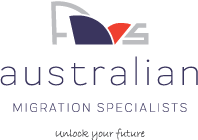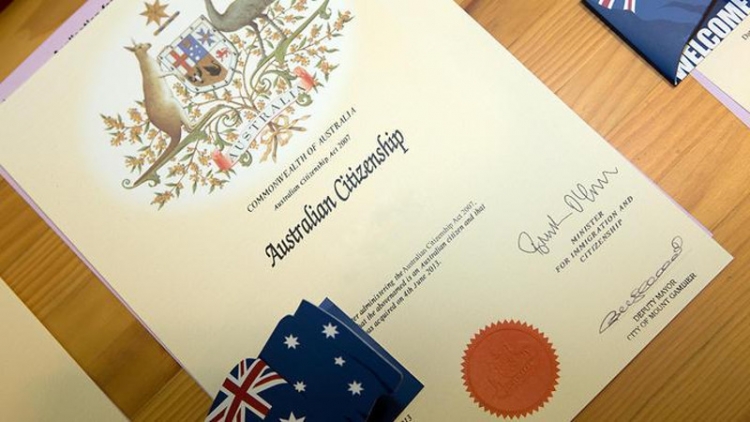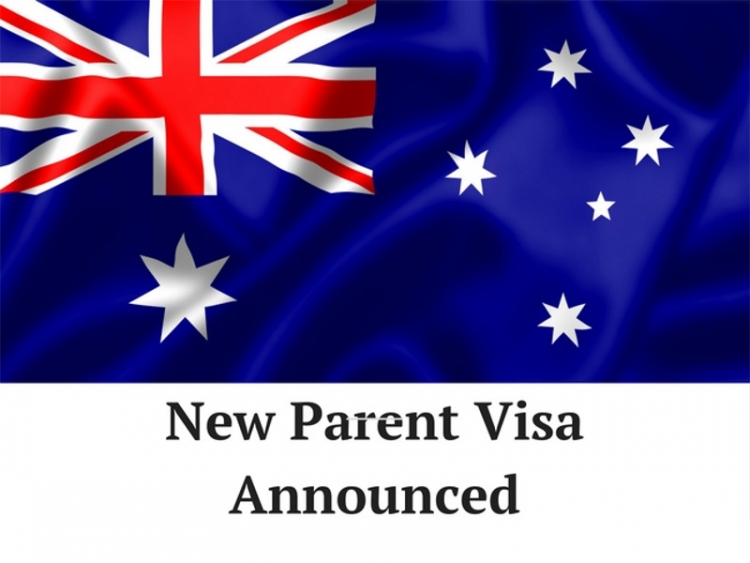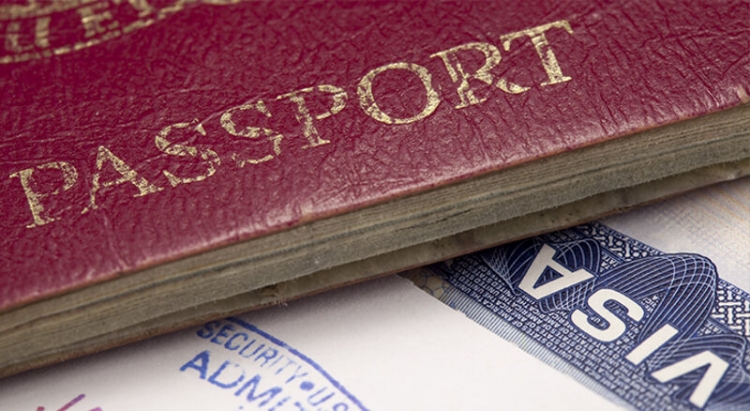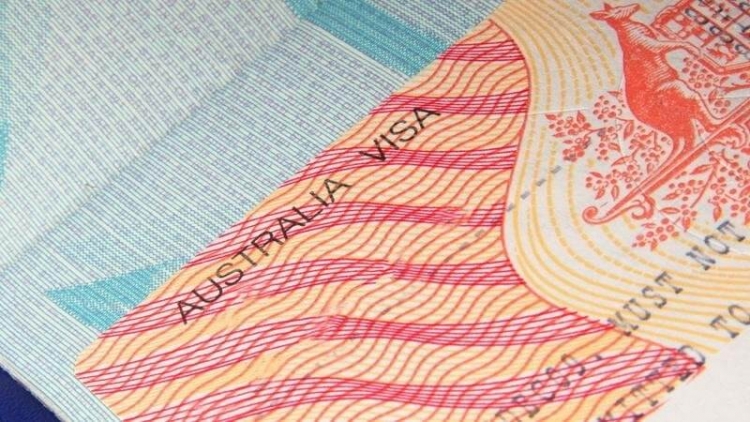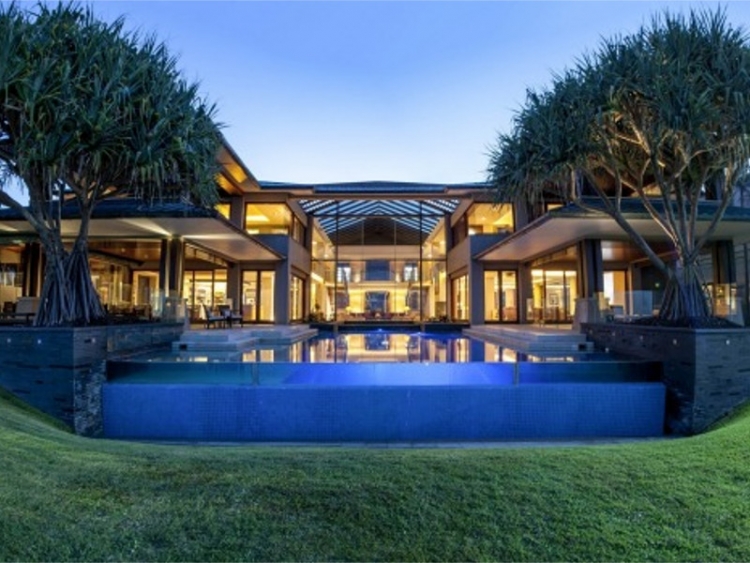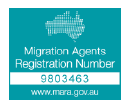Apply now: General Skilled Migration Assessment

raramuridesign support
Major changes proposed for skilled migration to Australia
Some of the major recommendations include reducing the age limit and giving more points for secondary adult applicant's skills and traits.
The changes proposed by Productivity Commission could significantly change the way Australia chooses its migrant intake.
In a recently submitted report to the Australian Government, the Productivity Commission has recommended major changes to Australia’s Skilled Migration program.
In a detailed report titled ‘Migrant Intake into Australia’, the Productivity Commission has recommended a series of measures to re-calibrate permanent skilled migrants coming to Australia.
Some of the major recommendations are:
Reduce the age limit
The commission has recommended that the Australian Government should consider reducing the age limit of 50 years for permanent migration under the skill stream and provide greater weight in the points‑based system for younger immigrants.
But having said that, the commission wants the Australian Government to maintain the existing capacity to provide exemptions to the age rule for particularly skilled applicants.
Use Skilled Occupations List as a benchmark
The commission has suggested that the Australian Government use the Skilled Occupations List as the sole basis for determining skill requirements for the different streams of the permanent skilled immigration program, including for those using the Temporary Residence Transition visa.
It also recommends undertaking a small pilot scheme that tests the merit of supplementing the Skilled Occupations List with:
- a more granular treatment of some occupations that cannot be easily allocated between the different skill levels
- the inclusion of particular, well‑defined, skill sets that are not occupationally‑specific.
‘Single’ applicants should get maximum points
Primary applicants without dependents would be given the maximum level of extra points under the commission’s plan.
Primary applicant should get more points for secondary applicant’s skills/traits
Commission says the Australian Government should significantly increase, up to a given maximum, the contributing points to a primary applicant based on the skill and other traits of the adult secondary applicant.
Streamline ‘points-system’ for all permanent skilled migrant applications
Commission recommends that the Australian Government adopt a common points system for the entire permanent skill stream, but in doing so should add points to a visa application by a primary applicant who has been nominated by an employer. Currently, the selection criteria is different for skilled migrant intake and 'employer-sponsored' applicants.
Assess partners and adult children for their English-competency
Under the commission’s plan, partners and adult children would be assessed on their English ability, work skills, age and education in addition to the assessments currently made of the primary visa applicants.
According to the commission, almost half of visas issued under the skilled migration stream are for secondary applicants. The Productivity Commission says there’s significant scope to use those applicants to raise the overall caliber of the intake.
The Department of Immigration and Border Protection told SBS the government was considering the Productivity Commission’s recommendations and would respond “in due course.”
Source: sbs.com.au
New temporary parent visa for Australia announced
In the last week, the Australian government has announced they planning to introduce a new temporary visa for parents visiting their children in Australia.
The new visa is proposed to be a 5 year temporary sponsored visa and will be music to the ears of many South Africans who have children living in Australia or parents living overseas.
The government says they are planning on introducing the visa by July 2017, which is less than 12 months away. While some details are yet to be determined, here are some of the key details we do know about the proposed visa.
Cost
No specific visa fees have been decided on yet, but the government has said it will be ‘more affordable’ than the current visa options for parents coming to Australia. Parent visas currently are one of the most expensive routes into Australia and do put many people off even applying.
Processing Time
Parent visas at the moment can sometimes have wait times of up to 30 years. The Australian Department of Immigration have acknowledged that the current visa program is not efficient, so hopefully that means much quicker processing times on the new proposed parent visa.
Private Medical Insurance
Visa holders of this new parent visa will be required to have valid private medical insurance to ensure they will not be a burden on Australia’s public health care system.
Financial Support
Applicants will have to show sufficient financial support from the children they are visiting to further prove they are able to support themselves, or be supported financially during their stay in Australia.
Who Is Eligible?
Only parents of permanent residents, Australian citizens and eligible New Zealand citizens will be able to apply for this visa. So for anyone here on a temporary visa, their parents are ineligible for this new visa type.
Community leaders across the country are currently being consulted with to help decide on what the new visa’s features will be.
The Australian government has recognised the benefits of having three generations of families reunited for longer periods of time, and many will agree and be excited about this new proposed visa category.
Source: thesouthafrican.com
Australia considering cost of parents visa after productivity commission report
Productivity Commission urged the government to double the fee from $55,000. Now, Immigration Minister says the there is a need to consider policy setting for family visas.
In its report submitted to the government on Monday, the Productivity Commission urged the Australian government to substantially hike the fee for the contributory parental visa.
Three days later, Immigration Minister Peter Dutton said the government was considering “policy settings” for family visas, Fairfax Media reported.
Productivity Commission in its report said the $55,000 visa fee covered only a fraction of the $335,000 to $410,000 cost to the taxpayers and urged the government to double the fee in order to meet the cost to the community.
The commission said that the 7200 parents arriving in Australia pay relatively little tax, and each year cost between $2.6 and $3.2 billion over their lifetime as they require more services.
Mr. Dutton said this overly complex visa system was supported by ageing infrastructure and required further changes.
"Work to simplify and reform the system must go further to better position us to deal with the increasing demand from travellers,” he said while speaking at the Australian Strategic Policy Institute.
"Each year around 130,000 places are made available for skilled persons and their families to migrate permanently to Australia, and around 60,000 places are available for families of Australians to do the same. These numbers are substantial and capable of having a significant impact on the labour force and welfare costs into the future," he said.
"It is therefore vitally important that we carefully consider the policy settings for the permanent skilled and family streams of the migration program. With the right settings these new entrants to the labour market can be an effective supplement to the labour force, and not a substitute for it," he added.
Source: sbs.com.au
Abolish investor visa program: commission
The Productivity Commission says the federal government should scrap a special program granting visas to wealthy migrants who invest millions in Australia.
The Productivity Commission has stuck the boot into a special visa programs for wealthy migrants with investment cash to splash in Australia.
The commission's report on Australia's migration intake says the significant and premium investor visa programs should be abolished.
"The economic benefits ... are likely to be relatively modest and accrue mainly to the visa holders and to fund managers," it says, arguing the case for retaining the visas is weak.
Source: sbs.com.au
Over 50 occupations may be dropped from Australia's Skilled Occupation List
The Department of Education and Training provides advice to the Minister of Immigration and Border Protection on the composition of the SOL.
Over fifty occupations may be removed from Australia’s Skilled Occupation List that identifies occupations for immigration to the country. The SOL is a compilation of occupations for skilled migration for the purpose of meeting the medium to long-term skill needs of the Australian economy.
The 52 occupations that have been flagged on the Skilled Occupation List 2016-17 include health professionals, including specialists, engineers, taxation accountants, barristers, solicitors etc.
The federal health department is pushing to scrap 41 jobs from SOL - including GPs, surgeons and anaesthetists, The Australian has reported.
“Immigration is often used as a short-term demand management strategy and it continues to be poorly co-ordinated," a Health Department submission into the review of the Skilled Operations List reads.
"Over a longer planning horizon, better management of migration pathways for international health professionals must occur in combination with all commonwealth departments"
The move would be counterbalanced by increasing numbers of local medical graduates who could fill vacancies, especially in regional areas.
The Department of Education and Training provides advice to the Minister of Immigration and Border Protection on the composition of the SOL.
The department undertakes the review of the SOL each year following which there are a number of occupations which are ‘flagged’ for possible removal in the future. Generally, occupations are flagged when there is emerging evidence of excess supply in the labour market.
The list of occupations flagged by the Department of Education and Training
| ANZSCO Code | Occupation |
| 133513 | Production Manager (Mining) |
| 221111 | Accountant (General) |
| 221112 | Management Accountant |
| 221113 | Taxation Accountant |
| 224111 | Actuary |
| 224511 | Land Economist |
| 224512 | Valuer |
| 231212 | Ship's Engineer |
| 231213 | Ship's Master |
| 231214 | Ship's Officer |
| 232213 | Surveyor |
| 232214 | Cartographer |
| 232214 | Other Spatial Scientist |
| 233111 | Chemical Engineer |
| 233211 | Civil Engineer |
| 233212 | Geotechnical Engineer |
| 233213 | Quantity Surveyor |
| 233214 | Structural Engineer |
| 233215 | Transport Engineer |
| 233411 | Electronics Engineer |
| 233511 | Industrial Engineer |
| 233512 | Mechanical Engineer |
| 233513 | Production or Plant Engineer |
| 233911 | Aeronautical Engineer |
| 233911 | Agricultural Engineer |
| 233913 | Biomedical Engineer |
| 233914 | Engineering Technologist |
| 233915 | Environmental Engineer |
| 233916 | Naval Architect |
| 234611 | Medical Laboratory Scientist |
| 234711 | Veterinarian |
| 251211 | Medical Diagnostic Radiographer |
| 251212 | Medical Radiation Therapist |
| 252411 | Occupational Therapist |
| 262611 | Podiatrist |
| 252712 | Speech Pathologist |
| 253111 | General Practitioner |
| 253211 | Anaesthetist |
| 253312 | Cardiologist |
| 253315 | Endocrinologist |
| 253316 | Gastroenterologist |
| 253317 | Intensive Care Specialist |
| 253321 | Paediatrician |
| 253913 | Obstetrician and Gynaecologist |
| 253999 | Medical Practitioners nec |
| 271111 | Barrister |
| 271311 | Solicitor |
| 272314 | Psychotherapist |
| 272399 | Psychologists |
| 351311 | Chef* |
| 399111 | Boat Builder and Repairer |
| 399112 | Shipwright |
Source: sbs.com.au
Contact - Thanks
Thank you for contacting us!
We have received your message and will contact you shortly.
Things to do on Arrival
This information is for all prospective and newly arrived permanent and temporary migrants to Australia. Government and community organisations provide Australian residents with many services. This information will give you an introduction to the services and assistance available, and where you can go for advice.
This information contains important matters for your first weeks in Australia.
The issues you will face as you begin your new life in Australia will be different to those in your homeland. However, there are many services to help you settle successfully and become a valued member of the Australian society, just as millions of people who arrived in Australia before you have done.
Time zones
There are three time zones in Australia - Australian Eastern Standard Time (AEST or EST), Australian Central Standard Time (ACST) and Australian Western Standard Time (AWST).
Daylight Saving Time applies to some states from October to April – go to www.australia.gov.au/about-australia/facts-and-figures/time-zones-and-daylight-saving for information.
Apply for a tax file number
Australian workers pay tax to the government on their income. To receive an income in Australia, you need a tax file number (TFN).
A TFN is a unique number issued to individuals and businesses to help the government administer taxation and other government programs. The money collected from taxes is used to fund government programs and services such as roads, schools and hospitals.
Income includes wages or salary from a job, payments from the government, and money earned from investments including interest on savings accounts.
How to apply for a tax file number
If you are migrating to Australia or have a temporary resident visa that allows you to work in Australia, you can apply for a TFN by going to the Australian Taxation Office (ATO) website, by phoning the ATO or by visiting some ATO Service Centres. The fastest way to get a TFN is online at www.ato.gov.au/tfn - you will need your passport and an Australian address.
| Australian Taxation Office | Contact details |
| Telephone | 132 861 |
| Visit an office | |
| Information in languages other than English | |
| ATO Website |
Enrol with Medicare
Medicare is Australia’s national health care system, which provides free or subsidised health care services to Australians and permanent residents. Some temporary migrants may also be eligible for Medicare services.
If you are eligible for Medicare you have immediate access to health care services and programs. These include free public hospital care, help with the cost of out-of-hospital care, and subsidised medicines.
For information on Medicare Services, go to www.humanservices.gov.au/medicare or visit your local Medicare Service Centre.
How to enrol with Medicare
To enrol with Medicare, go to a Medicare Service Centre with your passport and other travel documents. If you meet all requirements, you will be given a temporary Medicare card number. You will receive your Medicare card in the post approximately three weeks later. You must let Medicare know if you change your home or postal address.
Emergency medical treatment is available 24 hours a day at Emergency departments of public hospitals.
| Medicare | Contact details |
| Medicare Website | |
| Information for migrants, refugees and visitors | |
| Information in languages other than English | |
| Telephone | 132 011 |
| Visit a service centre |
Contact Centrelink
The Department of Human Services provides social security payments and services through Centrelink. Centrelink helps newly-arrived permanent residents look for work, find courses or training and with the process for overseas skills recognition. Contact Centrelink to find out if you are eligible for a social security payment. Depending on your visa, there may be a waiting period before you can receive payments.
If you are eligible, payments may be made from the day you contact Centrelink. To be paid from the day you arrive in Australia, you or someone on your behalf—for example, your Humanitarian Settlement Services (HSS) provider or proposer—must contact Centrelink on the day you arrive and lodge a claim within 14 days.
Humanitarian entrants may be eligible for a Crisis Payment in addition to other social security payments. If you arrive under the Humanitarian Program you must:
claim within seven days of arriving in Australia, or
contact Centrelink with the intent to claim within seven days of arrival and lodge a claim within 14 days of that contact.
If you have children, you may be eligible for Government-funded payments for the cost of raising children (see www.humanservices.gov.au/ftb) or for child care fees (see www.humanservices.gov.au/childcare).
| Centrelink | Contact details |
| Centrelink website | |
| Information for migrants, refugees and visitors | |
| Information in other languages | |
| Phone self service | 136 240 |
| Job seekers | 132 850 |
| People with disability and carers | 132 717 |
| Older Australians | 132 300 |
| Students and trainees | 132 490 |
| Online account support | 132 307 |
| Complaints and feedback | 1800 132 468 |
| Australian apprenticeships | 133 633 |
| Families | 136 150 |
| For information in other languages | 131 202 |
| Visit a service centre | |
| For other Centrelink phone numbers |
Enrol your child/children in a school
You must enrol your child or children in a school as soon as possible. Contact the school you wish your children to attend to get enrolment forms.
You will need to show your travel documents and your child’s immunisation records. Children must have the required immunisations in order to go to school. Bring any school reports and certificates of their previous study.
In Australia, children must attend school from five years of age until they finish Year 10. Young people who have completed Year 10 must participate in full-time education, training or employment, (at least 25 hours per week) or a combination of these activities until they reach 17 years of age.
Intensive English language assistance is available for children who need to learn English.
Apply for a driver’s licence
In Australia, you must have a driver’s licence to drive and vehicles must be registered. If you drive without a driver’s licence or drive an unregistered vehicle you may be fined and your driver’s licence revoked. Driver's licences and car registrations are issued by state and territory governments.
Most states and territories allow you to drive for the first three months after arrival, if you are a permanent resident and have a current driver's licence from another country which is in English or has an official translation.
After this initial period, if you want to drive, you will need to get the appropriate Australian driver’s licence. You will need to pass a knowledge test, a practical driving test, and an eyesight test. There are strict traffic and drink driving laws in Australia, which you must obey.
You should always check with the authority in your state or territory:
| State or Territory | Licensing and motor vehicle registration agency | Telephone | Website |
| ACT | Road Transport Authority | 02 6207 7000 | |
|
NSW
|
Roads and Maritime Services | 13 2213 | |
| NT | Department of Transport | 1300 654 628 | |
| Qld | Department of Transport and Main Roads | 13 2380 | |
| SA | Transport | 13 1084 | |
| Tas. | Transport Tasmania | 1300 851 225 | |
| Vic. | VicRoads | 13 1171 | |
| WA | Department of Transport | 13 1156 |
Open a bank account
In Australia, people keep their money in a bank, building society or credit union. Most income, including salary and wages and government benefits, is paid directly into an account in your name. Australians use debit cards to withdraw money from their bank accounts and for many purchases.
If possible, open a bank, building society or credit union account within six weeks of your arrival in Australia. You will usually only need your passport as identification. After six weeks you will need additional identification. This may be difficult if you do not have many documents to identify yourself. Give the bank your tax file number (TFN) to avoid higher rates of taxation on interest earned.
Find a family doctor
A ‘family doctor’ will get to know your family and their health needs, and be your first contact for medical matters. These doctors are called General Practitioners or GPs. They provide general medical assistance for common illnesses and for people with chronic conditions who live at home.
Unlike some countries where it is necessary to go to the hospital to see the doctor, Australian GPs usually work from offices (surgeries) or clinics in the suburbs. People usually visit a doctor near to where they live. You are able to change doctors if you are not comfortable or satisfied with the service provided.
Finding a Family Doctor
You don’t need to be registered with a doctor in Australia. However, many people have a family doctor – a medical practitioner who they see for general health matters, including immunisations, prescriptions, medical certificates, health checks, mental health care and health advice.
These doctors are called General Practitioners (GPs). They may work in a small private clinic or practice, or in a public or private medical centre with other doctors. You can choose which doctor or medical centre you attend. GPs are listed online and in the telephone directory under ‘Medical practitioners’. You can decide whether you want to be seen by the same doctor each time, or if you are willing to be treated by other doctors in the same centre.
You may need to visit more than one practice to find your preferred family doctor. Some practices may not accept new patients.
The healthdirect website at www.healthdirect.gov.au also features a General Practice search to find your closest General Practice services.
Routine health concerns
If you have a health concern and it is not an emergency, go to your family doctor or to a medical centre. You may need to wait before seeing a doctor.
You usually need to make an appointment by telephone or online before you arrive. Make sure you are on time for your appointment.
Tuberculosis
If you are from a country in Asia, Africa, the Indian sub-continent, South America or Eastern Europe it’s likely you have been exposed to tuberculosis and are at a higher risk of being infected and getting sick from it.
Although you may have already been checked for tuberculosis before arriving in Australia, it is possible that you may have a latent or silent infection which is not found on a chest x-ray.
If you become unwell or are concerned about your risk of developing active tuberculosis speak to your family doctor or contact one of the telephone information and advice services listed below.
Specialists
You cannot consult a medical specialist without seeing a general practitioner (family doctor) first. The doctor may refer you to a medical or other specialist for further treatment.
Medical emergencies
Emergency medical treatment is available 24 hours a day, seven days a week at the Emergency departments of public hospitals. Public hospitals are listed under ‘Hospitals’ in the White Pages. Emergency treatment may also be available at some medical centres and some private hospitals.
If you or someone else is dangerously ill, telephone 000 immediately and ask for an “Ambulance”. When you go to hospital, bring any medicines and your Medicare, private health insurance membership, Health Care or Pension Concession cards.
If the situation is not an emergency, contact your family doctor.
Telephone health information and advice services
All states and territories have telephone health services that operate 24 hours a day, seven days a week. They provide free guidance and can direct you to local health services.
You should always try to contact your family doctor first if you have health issues. But if they are unavailable, these telephone services have qualified nurses who can give you immediate professional advice.
| State or Territory | Telephone Health Advice Service | Telephone | Website |
| ACT, NSW, NT, Tas., SA and WA | healthdirect | 1800 022 222 | |
| Qld | 13 HEALTH | 13 43 25 84 | |
| Vic. | NURSE-ON-CALL | 1300 606 024 |
In Queensland and Tasmania, ambulance services are generally provided free for local residents. In all other states and territories, fees may be charged. Fees vary depending on the distance you travel, the nature of your illness and whether you are eligible for a concession.
Ambulances can be expensive even for a short ride if you do not have ambulance insurance. If you live outside Queensland or Tasmania, you may want to purchase insurance. You can do this through membership schemes provided by the ambulance service or a private health insurance fund.
Business Migration Assessment - Thanks
Thank you for submitting our Business Migration assessment form.
Due to an unprecedented influx of enquires it may take a few days for you to receive a response from a consultant, but rest assured we will contact you as soon as we possibly can.
We will contact you shortly regarding your prospects for obtaining permanent residency, and eventually citizenship, for Australia.
ACT Released New Occupation List effective 1 September 2016
The Australian Capital Territory (ACT) Government is committed to a targeted skilled migration program and can provide advice on ACT nomination criteria, but not on wider immigration issues.
Before lodging an application for nomination, it is recommended that you obtain specific migration advice relevant to your circumstances from the Department of Immigration and Border Protection or a Registered Migration Agent.
The ACT Skilled Migration Program is managed by Innovate Canberra, Chief Minister, Treasury and Economic Development, a Directorate of the ACT Government.
Golden future of the coast
When Australia’s Gold Coast was voted one of the top three places in the world to buy a second home in by the well-respected Knight Frank annual global The Wealth Report 2016, many onlookers were amazed. How could that strip of ritz and glitz along 57 kilometres of Queensland coastline possibly be in the same international league as perennial favourites the Cote d’Azur in the south of France, and Spain’s Ibiza?
But those in close touch with the property market there weren’t in the least perplexed.
Knight Frank director of residential research Australia Michelle Ciesielski points to the the arrival of the Commonwealth Games in 2018 as having kick-started investment there, together with the new light rail system and a planned $200 million airport expansion, low prices compared with Sydney and Melbourne, and strong population and tourism growth.
“Many high-net-worth individuals (HNWIs) hold positions that require travel around the world, across many time zones,” she says. “To have the ability to check in when a spare window is created in their calendar is a huge appeal and it’s certainly a bonus if they can see some upside in the capital value of their asset over the holding period.
“A lifestyle property on the Gold Coast also offers the perfect setting for semi-retirement or those who don’t necessarily need to be in the office full time. There are more and more people adopting the fly-in, fly-out approach whilst still watching the capital value of the family home appreciate in the capital cities of Sydney, Melbourne and Brisbane.”
Bernard Salt predicts in the KPMG report: Beyond the Horizon: Regional Development Australian Gold Coast Inc. that, by the middle of this century, the Gold Coast will have 1.2 million residents, “but it will also be a city of truly metropolitan scale”.
The weaker Australian dollar will help bolster tourism, and overseas property buying in Australia’s sixth-largest city, and another huge boost will come from the light rail extension to the heavy rail, linking the Gold Coast with Brisbane, as well as the $345 million make-over of Jupiters Hotel and Casino – and plans for a new casino – and the $670 million investment in the Pacific Fair shopping centre.
A further attraction is the presence of some truly exceptional homes on the beachfront all along the Gold Coast. Arguably Queensland’s best, Tidemark, the 30-room-plus mansion on Mermaid Beach that’s our cover property, is now up for sale for $29.5 million.
“And it should be priced significantly higher,” says Michael Kollosche, of Kollosche Prestige Agents. “The land alone is valued at $16 million-$20 million and the house’s insurance replacement value is $20 million.”
Domain Group figures certainly show that house prices on the Gold Coast are extremely competitive, with its median only just more than half of Sydney’s. Last year, that rose 5.8 per cent, however, only marginally behind Sydney’s 6.9 per cent, but with property earning better gross rental yields, at 4.4 per cent against Sydney’s 4.1 per cent.
“Over the last 14 months, we’ve started promoting properties on the Gold Coast to our buyers because we’re seeing massive investment in infrastructure and we’re now expecting very strong growth,” says Marwan Rahme, managing director of the finance, wealth advisory, property and capital group of companies, Kanebridge. “It’s a very beautiful area, with some stunning properties.”
With both construction and land costs significantly lower than in Sydney and Melbourne, prestige home owners and buyers can get significantly more for their buck. As a result interest is growing exponentially from interstate in what’s been named the fastest-growing major non-capital city in the country by property marketers CBRE.
Two years ago, 10 per cent of inquiries for properties on the Gold Coast were from the southern states, says Gold Coast director Nicholas Clydesdale. “Now it’s over 40 per cent and it’s growing all the time.”
What the experts say
“It’s certainly a bonus if [HNWIs] can see some upside in the capital value of their asset over the holding period.” – Michelle Ciesielski, Knight Frank
What’s on trend
By the middle of this century, the Gold Coast … will “be a city of truly metropolitan scale”. – Bernard Salt. KPMG
What to look for
“We’re now expecting very strong growth.” – Marwan Rahme, Kanebridge
Feature property
Mermaid Beach
45-51 Albatross Avenue, $29.5 million
On more than 2800sqm of prime land fronting the ocean, Tidemark is billed as Australia’s best beachfront home. Now being sold by original owner Scott Perrin, the former Billabong director-turned-racing.com CEO, the resort-style house has more than 30 rooms, including six bedrooms each with their own en suites, as well as a theatre, steam room, sauna, spa, wine cellar and 11-car garage. “A house nearby, at 150 Hedges Avenue, sold for $13,250,000, and this is five times the land size, three times the house size and very similar high quality,” says agent Michael Kollosche.
Award-winning architect Bayden Goddard of BGD says the owner’s brief was to create an exquisitely detailed bespoke estate that utilised quality products and materials in a timeless manor. “It’s a residence that deserves to be mentioned alongside the best in the world,” Goddard says.A beachfront pavilion, with a teppanyaki grill, overlooks the pool and there’s an outdoor entertaining area with lawns, fringed by frangipani trees, and a children’s play area. It’s a short walk to surf clubs, cafes, restaurants and shops, and just 20 minutes to the airport.
Private treaty
Michael Kollosche,Kollosche Prestige Agents 04111 888 15
www.domain.com.au/4218-2012750398
41 The Promenade, more than $8 million.
With a 36-metre frontage to the sea, this seven-bedroom, five-bathroom marble-and-stone mansion has panoramic views from the Main Beach skyline to Surfers Paradise and all the way to Broadbeach. It has a poolside entertaining terrace, indoor pool, gym, internal glass lift and cinema room – perfect for when Dwayne “The Rock” Johnson stayed two years ago while filming his movie Andreas on the Gold Coast.
“There’s been a shortage of top-quality homes on the market, and this is one of the better ones on the coast,” says agent Duncan Longmore. The house also has a boardroom, fireplace and a four-car garage.
Private treaty
Duncan Longmore, McGrath Estate Agents Broadbeach 0419 611 792
www.domain.com.au/4217-2012670084
Surfers Paradise
6402/ 4 The Esplanade Boulevard, $6 million.
There’ll never be an apartment like this 64th-level sub-penthouse, either for its size – at 430sqm – or its 270-degree uninterrupted views of the coastline and ocean, believes agent Luke Vaughan. “This is unique, absolutely impossible ever to replicate,” he says. “You simply couldn’t ever build something like this again for anything like $6 million.” The four-bedroom, three-bathroom apartment is open plan with combined living and dining areas, and a massive balcony along the full length of the home. It includes a wine cellar, contemporary kitchen with top European appliances, airconditioning and a full security system, as well as parking for two cars.
Private treaty
Luke Vaughan Crown Realty International 0438 151 988
www.domain.com.au/4217-2012678320
Apply Now
So that we may assess your eligibility for a Business Innovation and Investment Visa, please complete the following Assessment Form.
So that we may assess your eligibility for a General Skilled Migration, please complete the following Assessment Form.
Speak to our Consultants


Registered Migration Agent No. 9803463
Contact Details
Tel: +27 11 783 9440
Australian Mobile: +61 404 371 683
The Business Exchange
4th Floor, 96 Rivonia Road
Sandton
South Africa,
2057
